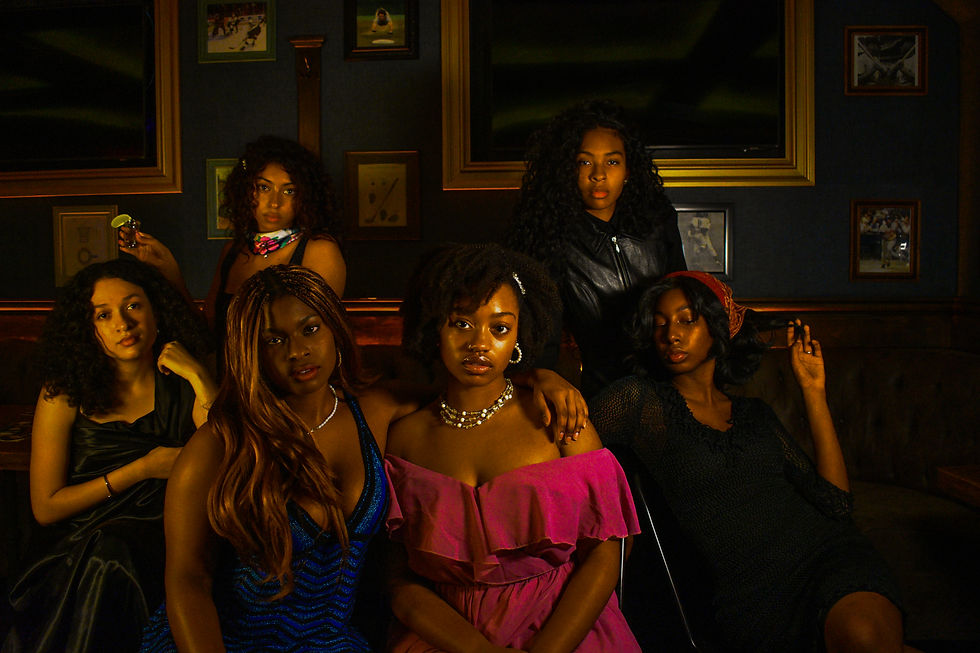The Rise of Coogler
- Chloe-Kaleah Stewart

- Oct 21, 2025
- 4 min read
Ryan Coogler’s career is often described as meteoric, but his rise as a filmmaker is also a testament to vision, discipline, and collaboration. From his earliest short films to helming one of the highest-grossing superhero movies of all time, Coogler has built a reputation as both a sensitive storyteller and a bold director unafraid to tackle cultural and political themes head-on. At the heart of his journey is his recurring partnership with actor Michael B. Jordan, a collaboration that has shaped both of their careers and produced some of the most memorable films of the past decade.

From shorts to Sundance: the early years
Born in Oakland, California, in 1986, Coogler grew up with an interest in both athletics and storytelling. While studying at USC’s School of Cinematic Arts, he created a series of short films that displayed his ability to combine social realities with powerful character-driven narratives. One of his shorts, Fig (2011), which focused on a young prostitute trying to leave sex work for the sake of her daughter, was especially well received and marked Coogler as a filmmaker with an eye for authenticity and human struggle.
His feature-length debut, Fruitvale Station (2013), marked a watershed moment in his career. The film dramatizes the final 24 hours in the life of Oscar Grant, a young Black man killed by a transit police officer in Oakland in 2009. It premiered at the Sundance Film Festival, where it won both the Grand Jury Prize and the Audience Award. The film also introduced the world to Coogler’s partnership with Michael B. Jordan, who played Oscar Grant with a vulnerability and strength that would come to define their collaborations.

The beginning of a powerful partnership
The director-actor dynamic between Coogler and Jordan has been likened to some of Hollywood’s great pairings, such as Martin Scorsese and Robert De Niro. With Fruitvale Station, Coogler trusted Jordan to embody a real person whose story carried immense cultural weight. Jordan, in turn, found in Coogler a director who could bring out nuanced, deeply human performances. This foundation of trust would carry into their next projects.
Reimagining legacy: Creed
In 2015, Coogler made Creed, a revitalization of the Rocky franchise. Rather than telling a nostalgic story, Coogler brought fresh life to the series by centering on Adonis Creed (played by Jordan), the son of Apollo Creed. What made Creed stand out was not just its thrilling boxing sequences, but Coogler’s dedication to exploring identity, legacy, and the idea of carving one’s own path while honoring the past. Sylvester Stallone reprised his role as Rocky Balboa, but the film was unmistakably Jordan and Coogler’s showcase.
Their collaboration here solidified them as one of Hollywood’s most dynamic creative duos. Coogler’s directing pushed Jordan physically and emotionally, demanding authenticity in the boxing sequences and emotional honesty in the character’s relationships. The result was a film that received critical acclaim and breathed new life into a decades-old franchise.
Breaking boundaries: Black Panther
In 2018, Coogler became the youngest filmmaker to direct a Marvel movie with Black Panther. The film was not only a box office juggernaut, grossing over $1.3 billion worldwide, but also a cultural milestone. It was the first Marvel film led by a predominantly Black cast and the first superhero film to be nominated for Best Picture at the Academy Awards.
Michael B. Jordan played Erik Killmonger, the film’s tragic and magnetic antagonist. Coogler gave Jordan a role that transcended the typical “villain” archetype: Killmonger’s pain and rage were rooted in historical displacement, systemic racism, and personal loss. Their collaboration once again highlighted Coogler’s ability to craft multidimensional characters and Jordan’s ability to embody them with intensity and depth.

A continuing legacy
Together, Coogler and Jordan have created stories that resonate with audiences not only for their entertainment value but also for their cultural weight. Their projects highlight themes of identity, heritage, justice, and resilience. As their careers continue to evolve—Jordan making his directorial debut with Creed III and Coogler expanding into producing and mentoring younger filmmakers—their partnership stands as one of the most fruitful of their generation.

Conclusion
Ryan Coogler’s journey from a young filmmaker in Oakland to one of Hollywood’s most respected directors is an extraordinary story of talent, dedication, and vision. At every step of his career, he has combined compelling storytelling with cultural relevance, and his collaborations with Michael B. Jordan have amplified his impact. From Fruitvale Stationto Black Panther, their partnership has given audiences characters and stories that are unforgettable. It is a testament to what happens when a director and actor trust each other deeply—and use that trust to tell stories that matter.
Directed by Chloe Kaleah Stewart @chloe.kaleah
Photography by Alanna Brito @ajaxult
Videography by Geo Mojica @geogurt
Styled by K Pereira @kaleb.pereira922
Production Managers: Tayja Whyte @tayjaa.x & Mickayla Davis @_mickayladavis_
Talent: Amira Coleman, Barry-Suzanna Collins, Deanthony Clarke, Demi Durrant, DJ, Lorthe, Gianna Joyce, Giselle Berents, Jaidon Walls, Junior Adjei, Kara Best, Michael “Kari” Brown, Kirimi Mugwiria, Laila Sharrieff, Mekayla Bailey, Melissa, Alcindor, Najee Durrett, Naomi Elizabeth Maharaj, Talia Williams, Zaheyal Leon













Comments